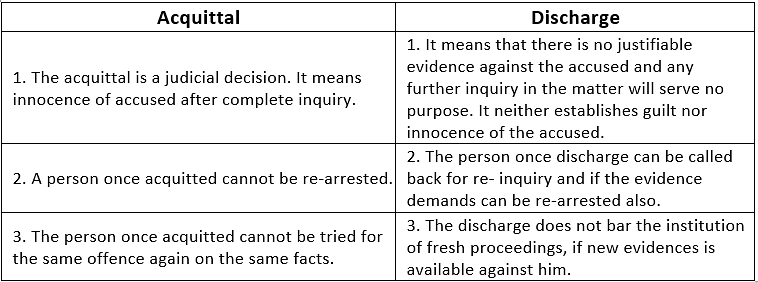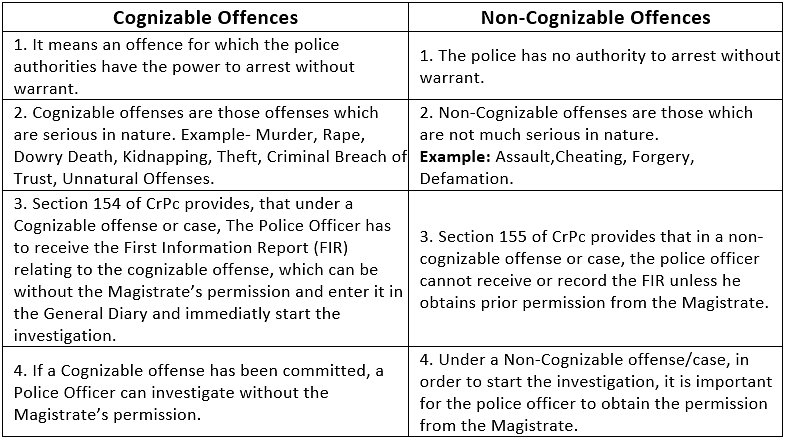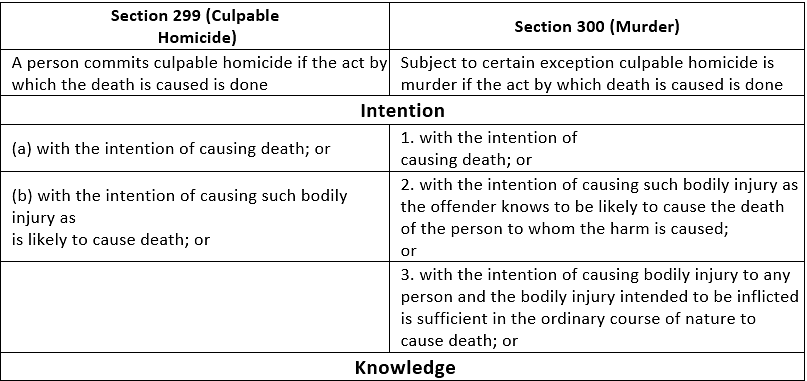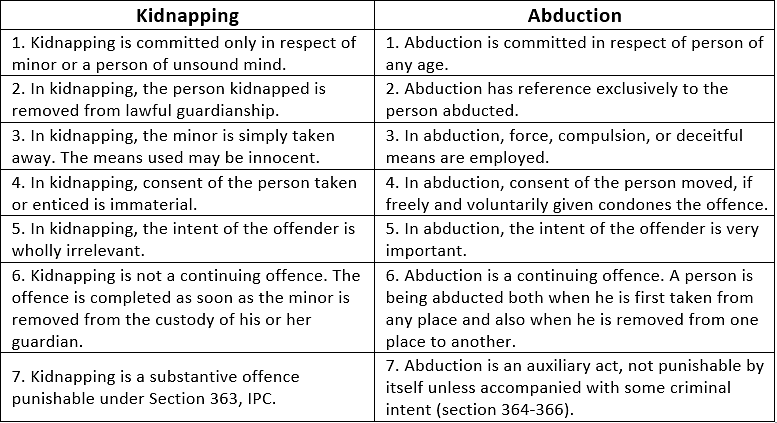Important Legal Terms & Provisions in IPC | Legal Reasoning for CLAT PDF Download
Difference between some Important Legal Terms
A few comparisons between important and often confused terms are given below:
Differences Between Culpable Homicide and Murder


Differences Between Kidnapping and Abduction

Differences Between Acquittal and Discharge

Differences Between Compoundable Offence and Non-Compoundable Offence

Difference Between Bailable Offences and Non-Bailable Offences

Differences Between Cognizable Offences and Non-Cognizable Offences

Important Provisions in IPC

IPC Section-34
Acts done by several persons in furtherance of common intension.
When a Criminal act is done by several people in furtherance of the common intention of all, each of such persons is liable for that act in the same manner as if it were done by him alone.
IPC Section-82
Act of any child under 7 years of age.
Nothing is an offence which is done by a child under 7 years of age.
IPC Section-85
Act of a person incapable of judgement by reason of intoxication caused against his will.
Nothing is which is done by a person who at the time of doing it, is, by reason of intoxication, incapable of knowing the nature of the act, or that he is doing what is either wrong or contrary to law, provided that the thing which intoxicated him was administered to him without his knowledge or against his will.
IPC Section-149
Every member of unlawful assembly is guilty of an offence committed in the Prosecution of the common object.
If an offence is committed by any member of unlawful assembly in prosecution of the common object of that assembly, or such as the member of that assembly knew to be likely to be committed in prosecution of that object, every person who, at the time of the committing of that offence, is a member of the same assembly is guilty of that offence.
IPC Section-268
A person is guilty of public nuisance who does any act or is guilty of an illegal omission which causes any common injury, danger, or annoyance to the public or to the people in general who dwell or occupy property in the vicinity or which must necessarily cause injury, obstruction, danger or annoyance to persons who may have occasioned the use any public right.
A common nuisance is not excused on the ground that it causes some conference or advantage.
IPC Section-269
Negligent act likely to spread infection of disease dangerous to life.
Whoever unlawfully or negligently does any act which is, which he knows or has reason to believe to be, likely to spread the infection of any disease dangerous to life, shall be punished with imprisonment of either description for a term which may extend to mouths, or with fine or with both.
IPC Section-270
Malignant act likely to spread infection of disease dangerous to life, whoever malignantly does any act which is and which he knows or has reason to believe to be, likely to spread the infection of any disease dangerous to life, shall be punished with imprisonment of either description for a term which may extend to two years or with fine or with both.
IPC Section-286
Negligent conduct with respect to explosive substance, whoever does, with any explosive substance, any act so rashly or negligently as to endanger human life, or to be likely to cause hurt or injury to any other person, or knowingly or negligently omits to take order with any explosive substance in his possession as is sufficient to guard against probable danger to human life from that substance shall be punishable with imprisonment of either description for a term which may extend six months, or with fine which may extend to one thousand rupees, or with both:
IPC Section-336
Act endangering life or personal safety of others- whoever does any act so rashly or negligently as to endanger human life, or the personal safety of others, shall be punished with imprisonment of either descriptions for a term which may extend to six months, or with fine which may extend to five hundred rupees or with both.
IPC Section-377
Unnatural offences, whoever voluntarily has carnal intercourse against the order or nature with any man, woman or animal shall be punished with imprisonment for life or with imprisonment of either description for a term which may extend to ten ears and shall also be liable to fine.
Penetration is sufficient to Constitute the carnal intercourse necessary to the offence described in this Sectiontion.
IPC Section-391
When five or more persons conjointly commit or attempt to commit a robbery, or where the whole number of persons conjointly committing or attempting to commit a robbery and persons present and aiding such commission or attempt, amount to five or more, every person so committing, attempting or aiding is said to commit 'dacoity'.
IPC Section-441
Whoever enters into or upon property in the possession of another with intent to commit an offence or to intimidate, insult or annoy and person in possession of such property, or having lawfully entered into or upon such property, unlawfully remains there with intent thereby to intimidate, insult or annoy any such person or with intent to commit an offence, is said to commit 'criminal trespass'.
IPC Section-494
Marrying again during lifetime of husband or wife whoever, having a husband or wife living, marries in any case in which such marriage is void by reason of its taking place during the life of such husband or wife, shall be punished with imprisonment of either description for a term which may extend to seven years, and shall also be liable to fine.
|
112 videos|161 docs|44 tests
|
FAQs on Important Legal Terms & Provisions in IPC - Legal Reasoning for CLAT
| 1. What is the difference between a legal term and a legal provision? |  |
| 2. What are some important provisions in the Indian Penal Code (IPC)? |  |
| 3. Can you provide an example of an important legal term used in the IPC? |  |
| 4. What is the difference between Section 302 and Section 304 of the IPC? |  |
| 5. Can you explain the meaning of the legal term "cheating" as used in Section 420 of the IPC? |  |

|
Explore Courses for CLAT exam
|

|






















